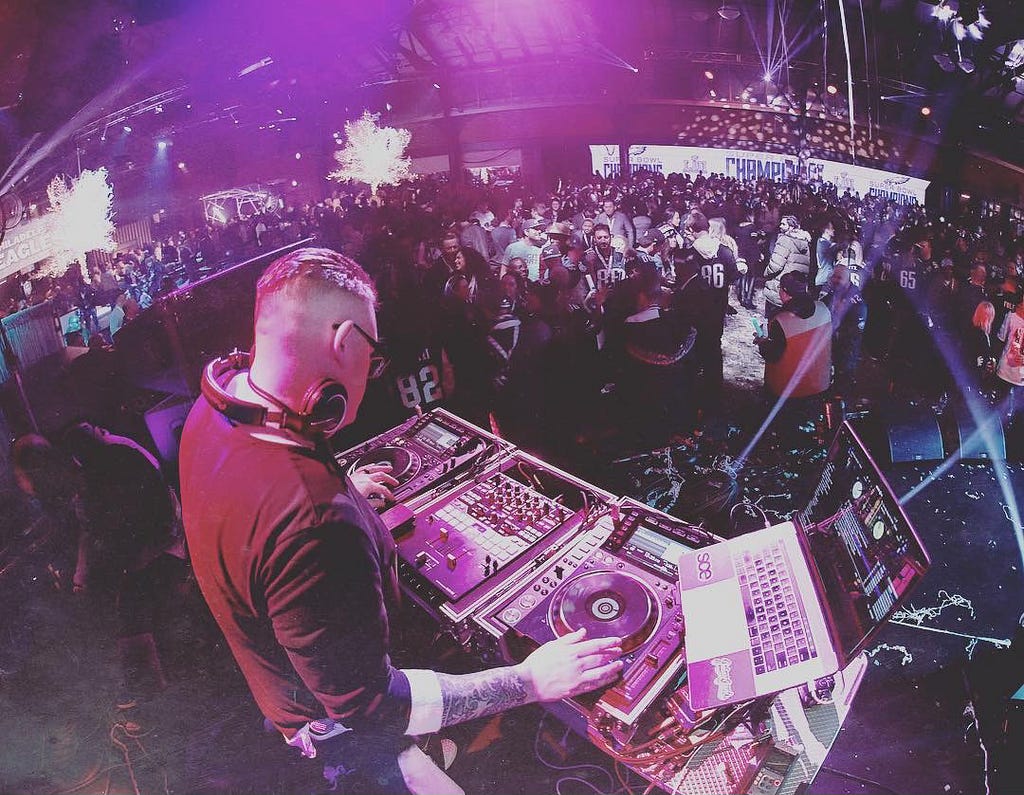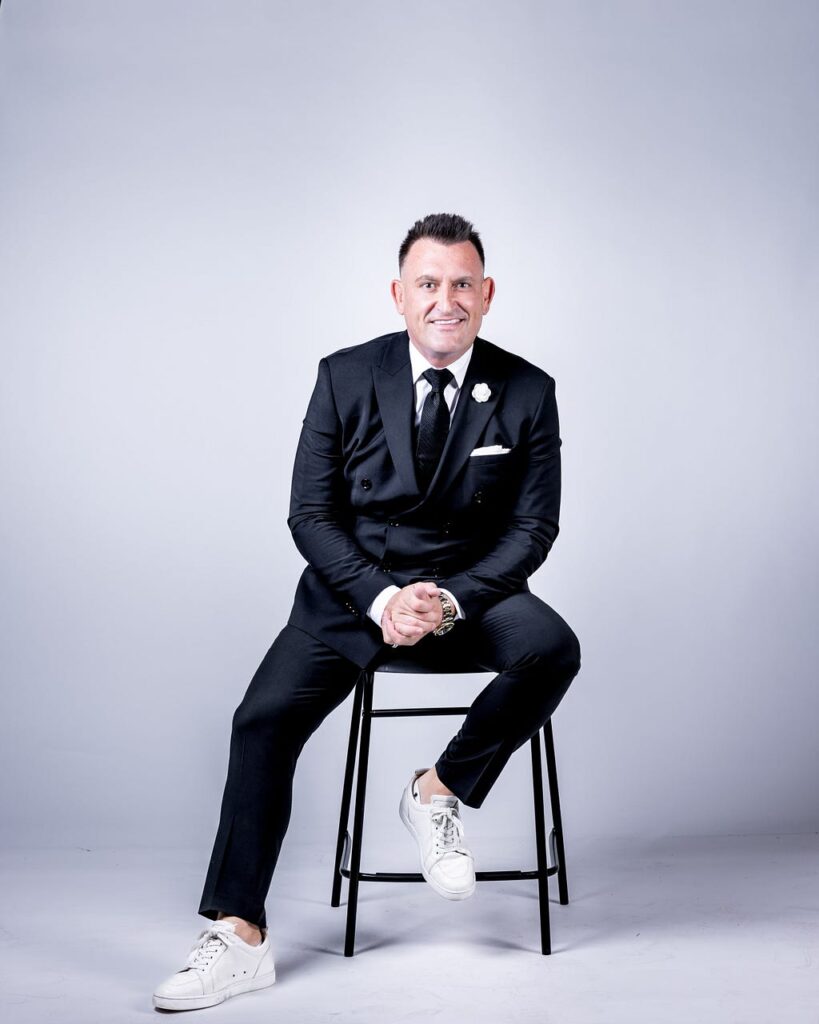An Interview With Chad Silverstein
Relationships are incredibly important. People do business with who they like and who delivers. The relationships you have can impact your future in many ways, so do your part to maintain, nurture and evolve your network and relationships ongoing.
We are starting a new interview series about the world of entrepreneurship beyond the classroom — a realm where theory meets grit, and education meets real-world challenges. We want to hear about critical business wisdom that often goes unspoken in academic settings. I had the honor of interviewing Jason Jani.
Jason Jani is a renowned entrepreneur and entertainer, owner of SCE Event Group (DJs and music entertainment) and Snapshot Photobooth (a photo-entertainment company), based in New Jersey. Jason curates highly personalized events for his clients; SCE Event Group does over 2000 events a year. He also runs a company called The DJ Collective which helps to inspire and encourage new professionals in the business.
Thanks for being part of this series. Let’s jump in and focus on your early years. Can you share who was your biggest influence when you were young and provide specific examples of what you learned from them that helped shape who you’ve become and how you live your life today?
My dad is probably the biggest influence in my life. He gave me the foundation to understand why hard work matters, how presentation impacts perception, and how consistency and discipline can help you achieve things you may never imagine.
Staying on the topic of influence, who has been your biggest catalyst more recently and what can you share that you’ve learned from them that led you to making changes in your life?
My team has been an important source of influence. I believe you are the sum of who and what you surround yourself with and I am grateful to have many creative and talented team members around me. The team pushes me to consider viewpoints that may be different from my own, as well as opinions and perspectives that I may not have thought of at first look.
Mistakes are invaluable. Can you name one specific mistake that you made early on, and learned the most from, but wish you’d been forewarned about?
Over the years I have made many mistakes that have cost me energy, effort, time and of course, dollars. At the core of those issues was not being clear on expectations, deliverables, and making assumptions of what others will do.
Is there a leadership myth you believed early on that you’ve since debunked through your real-world experience?
“You can’t teach an old dog new tricks.” At first, this was a motto that sadly ruled some decisions I made and admittedly did not get entirely right. Over time, I have learned to ask the question “why?” more often, which has allowed me to get to the motivation behind a conversation, opportunity, or issue at hand. Understanding the perspective and purpose of someone else’s actions has allowed me to see things differently and realize that people may be more open to learning and change than I thought.
What’s the key operational insight you’ve gained since running your business that was never mentioned in any classroom?
Inside the classroom, many classes and assignments were purely based on numbers and tangible assets of a business. What I have learned in the field in owning a business is how the numbers and tangible assets are important, but how culture, emotional intelligence, and team member chemistry truly are the differentiators in any service business. If the work environment and vibe is enjoyed by the team representing your brand, the level and quality of work and loyalty from those team members will increase significantly — as well the production of that team.
Did college prepare you for scaling a business? What specifically was missing?
Yes and now. For me, switching careers from network and communications management to the ever-changing world of entertainment, meant I was doing vastly different things. There are many core lessons learned that could be applied to the world of management, but culture and the industry itself have shifted greatly since I graduated college in the mid 2000’s.
Any unexpected challenges in team dynamics that your academic experience didn’t prepare you for? How did you handle it?
The world of academics has prepared me for a forward-thinking structured approach to team dynamics and situations. In contrast, the real world in the event industry is case by case, everything is situational especially when dealing with clients and emotionally charged parties and events. Although we are protected by legal contracts and business guidelines, there are things that come up over the years that have pushed me to consider alternate ways of resolving problems and situations. In relation to the team, when working with different personality types, there are always situations that can arise, where team members feel overshadowed or disagreements take place. In handling this in particular, I give my team an opportunity for open dialogue and ensure everyone is able to vocalize their thoughts safely and openly throughout the creative process. Transparency is paramount to managing dynamics; sometimes that means that it takes longer to finalize a path but it keeps the team in lockstep.

What’s your advice for new entrepreneurs? What are your “5 Things You Won’t Learn in College But Must Know to Succeed in Business”?
- Relationships are incredibly important. People do business with who they like and who delivers. The relationships you have can impact your future in many ways, so do your part to maintain, nurture and evolve your network and relationships ongoing.
- Always be a student. In my opinion, there is always room to grow, ways to become more efficient and the opportunity to evolve personally and professionally. As culture shifts, it’s important to stay open to new techniques, processes, and technology.
- Sometimes in order to move forward you have to take a step backwards. Failure to me is an opportunity to reset, to learn and to grow.
- Your circle is important. You are the product of who and what you surround yourself with, and it is totally ok to find people who have strengths in areas that you may not thrive in. Find team members who align with your core beliefs and that complement the areas of your world that may need attention.
- Culture is the key to success of every organization.
How do you ensure your team not just understands but embodies your business principles? Any techniques you wish you’d known earlier?
I believe your team needs to have an opportunity to thrive, not just survive. Taking the time to understand their near and long term goals means you can actively work with them to achieve their self-described success. I give my team the ability to voice their expectations and I consider their opinions when it comes to how we do business and what our overall business goals are; this keeps the team onboard with company goals and they have an investment in our success.
If we were sitting together two years from now, looking back at the past 24 months, what specifically has to happen for you personally and professionally, for you to be happy with your results?
For me to feel that the next 24 months are fulfilling and successful, it’s simple: to continue adapting to the needs of the people who trust my team and I with their events, while empowering my team to continue to work toward their own goals. In my personal life, it would be to continue to be a good husband, father, and friend to my family and friends.
Looking back over the last two years, what key accomplishments make you satisfied with your progress?
Over the past two years, I am happy with the growth of my business and team, in watching those that I have mentored to catapult into successful careers, and in the high-quality production that we have been able to offer to our clients.
As someone with significant influence, what’s the one change you’d like to inspire that would benefit the most people?
I would like to challenge those in my industry to think bigger, to dream bigger, and to not settle.
How can our readers keep up with your work?
SCEEVENTGROUP.COM
INSTAGRAM @JASONJANI @SCEEVENTGROUP
YOUTUBE: JASON JANI
Thank you so much for joining us! We wish you only success.
About the Interviewer: Chad Silverstein is a successful entrepreneur with more than two decades of experience as a successful founder and CEO. He started his first company, Choice Recovery, Inc. a third-party collection agency, out of his apartment while going to The Ohio State University. He grew the business nationwide and represented more than 10,000 clients before selling the company on his 25th anniversary. His second venture, [re]start, is a career development platform that helps people find new jobs, launched in 2013 as a division inside his agency. [re]start was a catalyst to Chad’s team becoming an industry outlier after connecting thousands of people to meaningful employment opportunities. His company was nationally recognized for its social impact, twice being ranked the #1 business to work for in Central Ohio. Chad sold [re]start in 2023 and is now a writer and thought leader for Authority Magazine’s Entrepreneur and Sports Editorials. He also offers an exclusive executive leadership program inside his online community at Authentic Authority.
Jason Jani Of SCE Event Group On 5 Things They Forgot To Mention In College was originally published in Authority Magazine on Medium, where people are continuing the conversation by highlighting and responding to this story.
